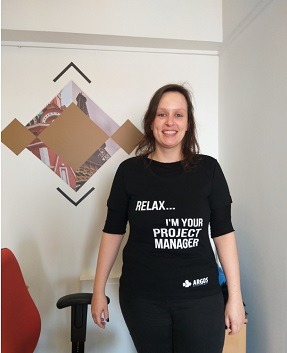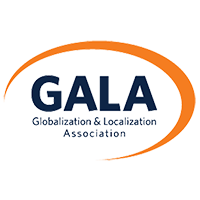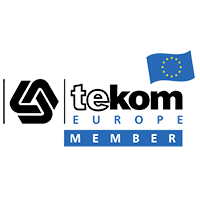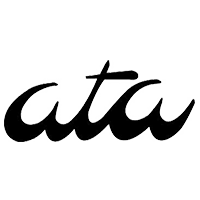Argos Partner Recognition Program – 2019 Winter Edition
Interview with 2019 Winter Edition Winners – Ana and Gloria.
We are happy to announce the new winners of our seasonal Argos Partner Recognition Program! As you remember every quarter we are rewarding The Best Freelancer and The Best Language Service Provider for outstanding performances in the work process with Argos.
Today we have the pleasure to talk with our 2019 Winter Edition Winners Ana and Gloria.
Ana – PM at one of Argos most trusted Partner LSPs:
How did you become a Project Manager?
Ana: Well, it’s quite a simple story. I was working as an in-house translator and my boss at the time (still my boss today), approached me to see if I was interested in becoming a project manager. Back then, I had a very limited knowledge of what a PM did, but decided to give it a try. I wasn’t very confident it would be something I would like or be any good at, but after a few months of training and shadowing of other PM, I was glad I did. Now, I’m very happy that he approached me to become a PM because I must say I really enjoy it and prefer it over working full time as a translator.
 What are the daily challenges you experience?
What are the daily challenges you experience?
Ana: Not enough time for everything. Whatever it is you plan to do, it’s probably not going to happen because so many other things will have to take precedence. Thus, perhaps the biggest challenge is deciding how to organize and manage your time; even though, sometimes you feel that you have almost no control over it. The type and amount of work a PM has is dependent on both clients and translators.
Another big challenge is to keep calm and not overstress when things go wrong when there are issues or delays so that you can find a way to solve them. Finally, adapting to what each client wants and requests for each project, namely making sure that instructions are followed, because we all know that different clients have different needs, is another major challenge.
What do you like about your job?
Ana: It might seem cliché, but learning something new every day.As a PM, I work with many different subject areas and languages and have contact with so many different people from different places and backgrounds and who speak different languages. At the end of the day, I have always learned something new, regardless if it is a new medical term, an option in a CAT tool or some trivia about a different culture.Also, the feeling of delivering something well done on time.
What type of person makes a good Project Manager?
Ana: Someone who is able to multitask, prioritize, manage and organize their time. Almost never, a PM can start and finish doing something without being interrupted and having to do something else in between. Whether it is a new project, an update, a query, an email from a translator or client, there always seem to be some pressing urgent matter that needs to be handled asap. Part of the PM’s job is to prioritize what needs to be done first making sure that there is enough time to do everything in a timely manner.
Gloria – a very trusted Freelancer Linguist:
What would you advise to someone who is willing to start their career in translations?
Gloria: Ideally to find an inhouse placement for a minimum of 2 years where you can avail of training and supervision and peers support. This will give you the opportunity to develop a network of contacts throughout the industry that would be vital for the future, as well as to build your reputation.
 What type of person makes the perfect [freelance] translator?
What type of person makes the perfect [freelance] translator?
Gloria: Someone who is conscientious and who will take personal agency for their own ongoing professional development and standards. Someone who is open to receive feedback.
What is the biggest misconception people have about working as a translator?
Gloria: That anybody with languages can translate and they don’t have an understanding of the level of professionalism and standards required.
Does the growing trend towards Machine Translations worry you as a translator?
Gloria: Not at the moment. In my opinion it will eliminate the need for basic translation, which is good; however, the nuances of languages and communication are too complex and the human intervention, “the translator’s touch”, will always be needed.
What do you do when you are not translating?
Gloria: I have multiple hobbies, which I do with my family or on my own. I practice Shotokan karate and kickboxing during the week and hiking and hill walking during the weekends. I also like meeting my friends for coffee and in the evenings, every time I can, I love reading by the fire.
How do you ensure a good work – life balance?
Gloria: Because of my hobbies, I’m committed to a minimum of 2 hours training almost every day ensuring a break from work, which also gives me the opportunity to meet people and socialize.
What is the one food you turn to when looking to indulge?
Gloria: Seafood pasta!
What is your favorite way to spend your time off work?
Gloria: Walking with my family and my dog, meeting my friends for a coffee and a chat and doing sports.




